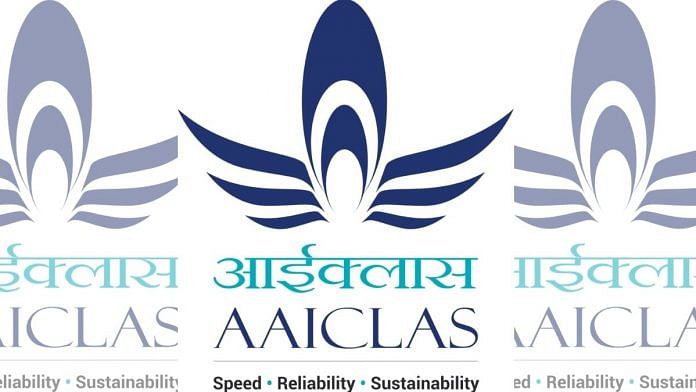
New Delhi: In the countdown to the roll out of Covid-19 vaccine in India, workers of AAI Cargo Logistics and Allied Services Company Limited (AAICLAS), a cargo terminal operator, are going through a last minute drill at Pune airport before packages carrying the Covishield vaccine manufactured by Serum Institute India (SII) start arriving.
Promoted by Airports Authority of India (AAI) to manage cargo movements at airports, the Public Sector Undertaking (PSU) is responsible for facilitating vaccine transportation — right from storing, loading and unloading vaccine shipments in and out of the airport from Pune to the designated 41 airports that the government has finalised for delivery of the vaccines.
Pune has been made the main hub from where the vaccine distribution will start as the SII, which is manufacturing the Oxford-AstraZeneca’s Covid-19 vaccine, is based out of the city.
The Centre Thursday also allowed passenger aircraft to transport the vaccines.
“We are coordinating the movement on behalf of the airport operator in terms of facilitating vaccine transportation. Our primary role is to ensure that these shipments move quickly in and out of an airport,” Arvind Singh, chairman, AAICLAS, told ThePrint.
AAICLAS was set up in 2016 after the AAI demerged and corporatised its cargo department into a functionally and administratively independent organisation. The annual turnover of the agency is close to Rs 400 crore.
Cold storage, special vaults at designated cargo terminals
The cargo terminals at the designated 41 airports have the required infrastructure, including special vaults and cold storage facilities, with temperatures as low as 8 degree Celsius.
Covishield as well as Covaxin, which is manufactured by Bharat Biotech, have to be stored at 2-8 degree Celsius.
From the airports, the vaccines will be transported in special insulated vans or vehicles to district medical stores depots and primary health centres.
Singh said that cargos that have such special handling requirements are primarily pharma and perishables.
“Depending on the shipment and special handling requirements, a temperature-controlled environment will be provided,” he said.
AAICLAS has already set up a centralised Operations Control Centre in Pune to effectively coordinate and monitor the movements from supplier to the buyer in the most efficient way.
This is a particularly important project, but Singh said that AAICLAS has undertaken similar large projects in the past that are complex, and consistently delivered.
1,000 ton medical cargo transported in lockdown
The PSU has also been at the forefront of Covid-19 relief operations in India. It transported approximately 1,000 tons of cargo across states in the initial months of the pandemic.
“All other modes of transport were shut during the lockdown. We coordinated with states to transport cargo comprising medicines, test regents and PPE kits,” Singh said.
“This is a particularly important project and all our resources are steadfastly focussed to deliver,” he added.
In the 2019-20 fiscal, AAICLAS had handled 9,00,000 tons of cargo.
The Centre is working to bring all service providers and stakeholders together and have a closer look at the various Standard Operating Procedure (SOP) that each one is working around.
“However, at this time, we are coordinating with all stakeholders and integrating these SOPs to ensure we work as one single entity — the ‘air cargo industry’,” Singh said.
Subscribe to our channels on YouTube & Telegram
Why news media is in crisis & How you can fix it
India needs free, fair, non-hyphenated and questioning journalism even more as it faces multiple crises.
But the news media is in a crisis of its own. There have been brutal layoffs and pay-cuts. The best of journalism is shrinking, yielding to crude prime-time spectacle.
ThePrint has the finest young reporters, columnists and editors working for it. Sustaining journalism of this quality needs smart and thinking people like you to pay for it. Whether you live in India or overseas, you can do it here.